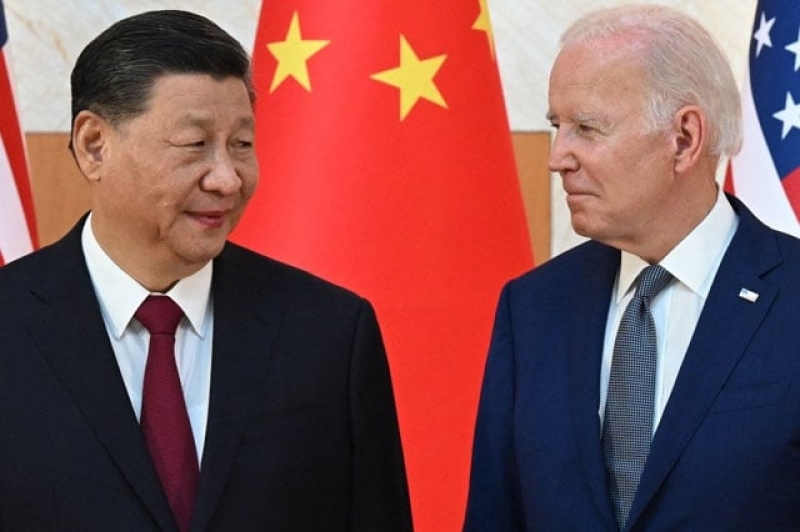- Jamaat Ameer calls meeting with Tarique 'an important moment |
- BNP govt to take office with economy at a crossroads |
- Pahela Falgun brings colour, music as spring begins |
- New MPs, cabinet members to be sworn in Tuesday |
Xi Tells Biden Ready for Smooth Transition to Trump

Chinese President Xi Jinping expressed readiness on Saturday to ensure a "smooth transition" in U.S.-China relations as Donald Trump prepares to return to the White House. Xi's comments came during a meeting with outgoing President Joe Biden at the Asia-Pacific summit in Lima, marking their last face-to-face meeting before Biden’s term ends.
The leaders of the world’s two largest economies met amid growing concerns about a potential return to trade wars and rising tensions when Trump resumes office in January. After shaking hands at the Chinese leader's hotel in the Peruvian capital, Xi reaffirmed Beijing’s commitment to stable relations with Washington.
“China is ready to work with the new U.S. administration to maintain communication, expand cooperation, and manage differences, striving for a smooth transition in the China-U.S. relationship,” Xi said through a translator.
Saturday’s meeting was their second in person since a breakthrough summit in California last year, and their third overall. Biden noted the progress the two countries had made, saying, “Our two countries cannot let any of this competition veer into conflict. That's our responsibility, and over the last four years, I think we've proven it's possible to manage this relationship.”
Concerns Over Trump's Return
Trump’s anticipated return has sparked fears of a tougher approach toward China. In his first term, Trump initiated a trade war with China, imposing tariffs that Beijing retaliated against. Trump has already signaled a confrontational stance for his second term, including threats to raise tariffs on Chinese goods by up to 60%.
Xi, however, called for more stability, urging the U.S. and China to "inject more certainty and positive energy into the turbulent world." His comments reflected concerns over global instability as both nations brace for the shift in U.S. leadership.
Biden raised critical issues during the meeting, including Taiwan, which China claims as its own, and China’s support for Russia amid its invasion of Ukraine. The White House stated that Biden expressed "deep concern" over China’s military ties with North Korea, particularly its troop deployments to Russia.
Despite these tensions, the transfer of power in Washington loomed large, with both leaders seeking to ease anxieties about the future. U.S. National Security Advisor Jake Sullivan emphasized that Biden had stressed the importance of "stability in the U.S.-China relationship" during this transitional period. However, Sullivan clarified that Biden was "not a conduit" for any messages Xi might want to send to Trump.
Climate and Protectionism Concerns
Beyond bilateral tensions, Xi also raised alarms about rising "protectionism," appearing to target Trump’s "America First" policies. At the Asia-Pacific Economic Cooperation (APEC) summit, Xi urged nations to "unite and cooperate" against growing protectionist sentiment, while Biden worked to strengthen ties with U.S. allies in the region, including Japan and South Korea, ahead of Trump’s return.
Biden also focused on climate change, with Trump’s potential policy shifts casting doubt on U.S. commitment to international climate agreements. Trump's rhetoric, including threats to withdraw from key climate pacts and ramp up fossil fuel drilling, adds to the uncertainty surrounding U.S. policy on the global stage.
Biden, who is set to become the first sitting U.S. president to visit the Amazon rainforest, will continue his international engagements in Brazil, where he will attend the G20 summit next week. Xi is also expected to attend the G20, keeping the spotlight on U.S.-China relations as both countries prepare for the next chapter in their complex, often contentious, partnership.

